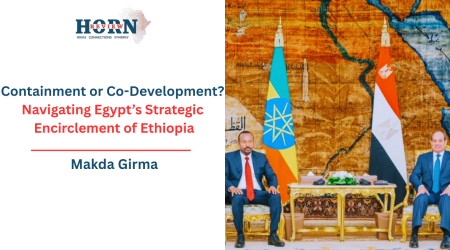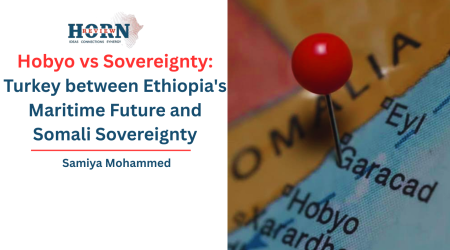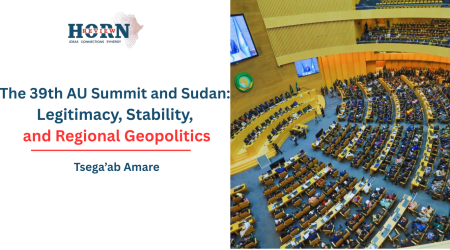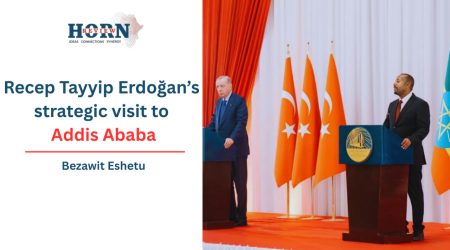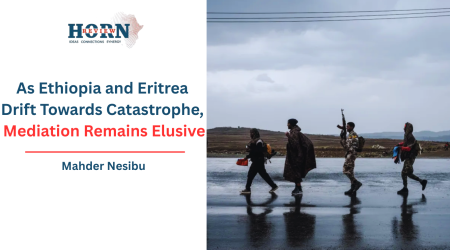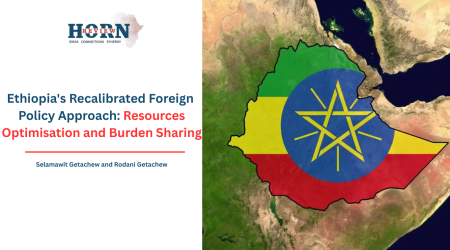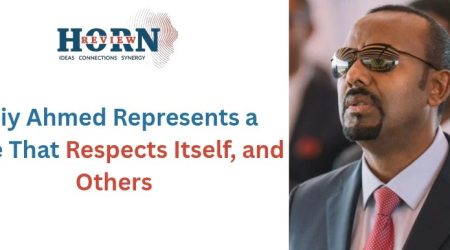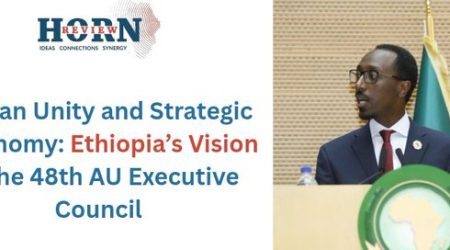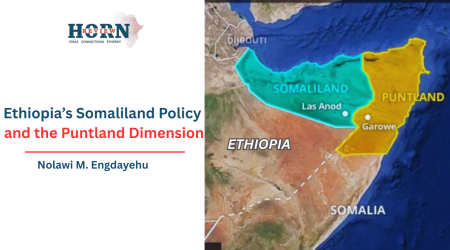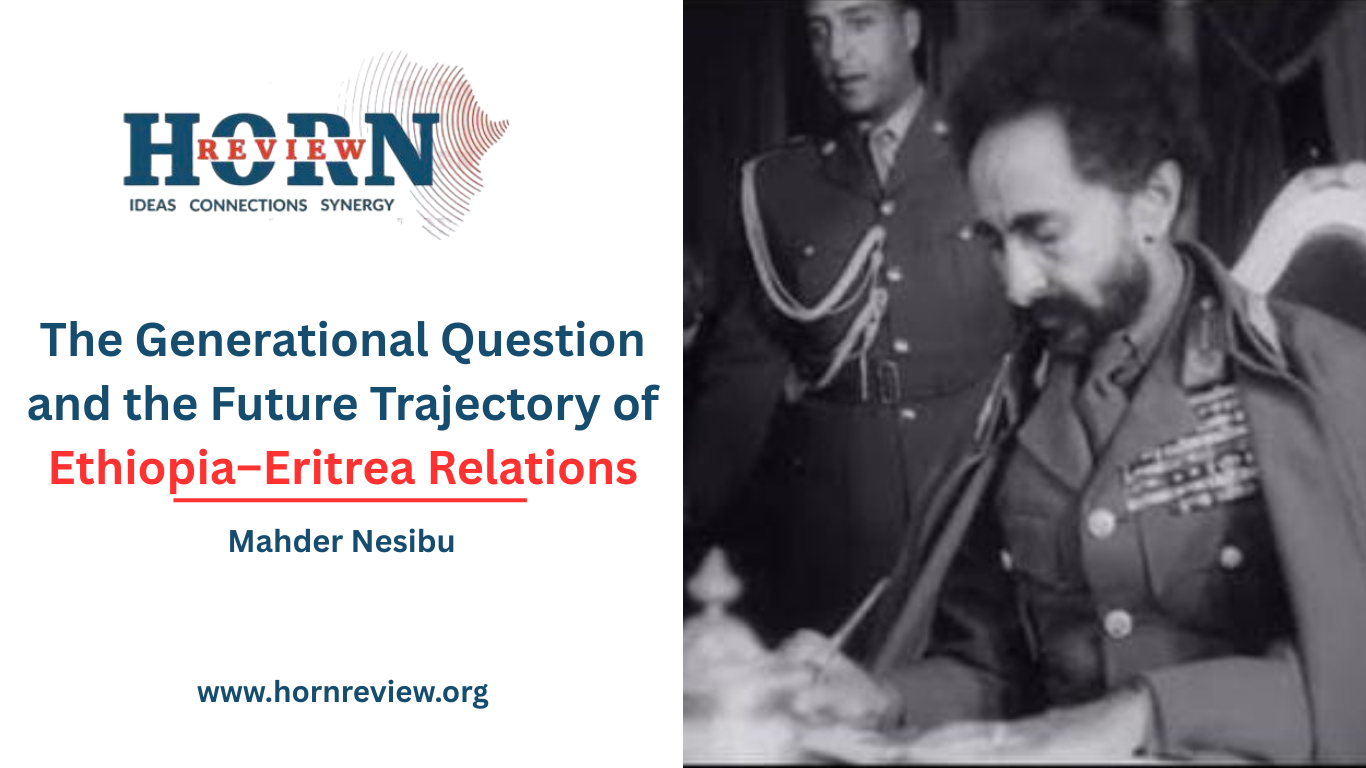
21
Nov
The Generational Question and the Future Trajectory of Ethiopia–Eritrea Relations
Within the discourse on the relationship between Ethiopia and Eritrea, the generational question has entered public conversation with renewed vigour. In a recent policy forum, the Foreign Minister of Ethiopia referred to a current generation in Ethiopia that approaches Eritrea’s statehood with a perception different from that of the past. This remark brings to the surface a wider intellectual concern, one that raises the issue of a generational question as a lens through which the future of Ethiopia–Eritrea relations might be interpreted. The idea that a generation is shaped by particular structural pressures is not new. Each generation inherits a specific constellation of historical forces, economic constraints, technological transitions, and ideological climates. These conditions establish a sense of what is urgent, what is unresolved, and what is inescapable. A question becomes generational when a large cohort of people, living through the same structural pressures, identifies a shared point of tension that they believe must be addressed in order to move forward.
Eritrea’s cessation belongs to the wider landscape located within the twentieth century. Narratives of unification, territorial integrity, liberation, and independence were embedded in the continental dynamics of decolonisation and state formation. Political movements were shaped by conflicts over borders, identity, and sovereignty. Modern African states were in the process of becoming. The ideas through which elites and populations made sense of their political realities were shaped largely by anti-colonial struggle and national liberation movements. The Ethiopia–Eritrea story was formed inside this setting.
Throughout the twentieth century, the question of Eritrea’s place existed as a central dilemma for Ethiopian state institutions, international actors, and political movements. Debates were held in diplomatic circles and inside global bodies over whether Eritrea, in some form or another, should remain with Ethiopia or pursue its own independent path. These debates were ultimately overtaken by the violence of war. The Derg, which had considered territorial integrity to be an absolute national priority, confronted rebel movements emerging from Eritrea that saw themselves as dispossessed of the right to self-rule and self-determination. The field of struggle became the decisive arena.
The century concluded with the reality of Eritrea’s separation from Ethiopia. The two states emerged as neighbours carrying a difficult legacy. Attempts to build a functional post-separation partnership collapsed into conflict, and the war produced a situation defined by hostility and suspicion. The region was trapped in a condition described as neither war nor peace. The unresolved memory of separation shaped how each society understood its neighbour and how each state interpreted its own past.
The new century brought a shift in the generational horizon. The Foreign Minister’s recent remarks capture the beginning of this transition. He referred to the present generation in Ethiopia that does not inherit the resentment surrounding Eritrea’s cessation. This generation does not carry the conviction that Eritrea’s separation was a mistake that required correction. Despite the deep cultural and historical ties that link the peoples of the two states, the generational question has changed. The central themes of the twentieth century have receded. African states have become a settled reality. The once-dominant debates on liberation, unification, and post-colonial alignment no longer define the priorities of most of the continent’s youth. The question that now appears across many African societies concerns the quality of governance inside established states.
This shift is relevant to Eritrea’s internal trajectory. Themes of liberation carried political meaning for decades. The ethos of the “tegadelay” shaped the national imagination. The struggle against perceived occupation became the founding narrative. When the EPLF entered Asmara and declared statehood, hopes were immense. The war had ended, and the era of national development and prosperity seemed within reach. Yet the course the Eritrean state followed diverged sharply from these expectations. Scholars like Negash and Tronvoll observed that governing a state at peace presented a more complex challenge than organising a disciplined guerrilla movement at war. In the decades after cessation, Eritrea became associated with indefinite national service, authoritarian entrenchment, economic deterioration, and one of the highest rates of outmigration on the continent. International headlines reflected crisis rather than progress.
The relevant question, following the Foreign Minister’s line of thought, concerns the generational question that Eritreans face today. Severe repression has obscured how Eritreans articulate their feelings about their living conditions, their political future, and their economic possibilities. Public sentiment is difficult to map. What can be traced, however, is the divide between the generation of the liberation struggle and the generation that came after it. The PFDJ leadership, comprising the old guard, still governs Eritrea. It carries with it the worldview of the liberation era. It shapes the structure of the state and the limits placed upon the population. The youth of Eritrea inherit a system that was designed by a generation formed inside the conflicts of the twentieth century, yet they themselves live in a century defined by different pressures and different needs.
Under this framework, the youth are not a demographic category. They are a generation defined by structural constraints. The system of indefinite national service places young Eritreans in an environment of long-term uncertainty. They spend their most productive years in compulsory assignments that offer little upward mobility and minimal economic reward. The economy itself provides few alternatives because it is strained by internal restrictions and a lack of diversified development. The result is a generation caught between obligatory service and the desire to escape. Many face a future inside a stagnant labour market. Others consider migration as their only path to opportunity. This has drained the country of its young human capital and weakened its social and economic foundations. The generational question for Eritreans today revolves around the challenge of building a meaningful life inside a state that still lingers in the past.
Ethiopia experiences a different but related shift. The current Ethiopian generation also does not centre its political worldview on Eritrea’s separation. The idea of reversing the territorial outcome of the twentieth century no longer holds political or social relevance for the majority of young Ethiopians. Their generational question concerns stability, opportunity, institutional coherence, and the possibility of long-term prosperity within Ethiopia itself. They view Eritrea as a separate state that exists inside a region with deep interdependence. They recognise the social, cultural, and economic ties between the populations, yet the question of unification no longer anchors their political imagination. The generational horizon has moved.
The main argument that emerges from these observations is that both Ethiopia and Eritrea are experiencing a transformation in their generational priorities. The central preoccupations of the twentieth century have been replaced by different concerns. In both societies, there is a recognition that Eritrea exists as a sovereign state. The younger generation does not debate its legitimacy. The dilemma they face is how to interpret the fact of deep interconnectedness between the two states in a way that yields constructive outcomes. The region’s reality is one of historical wholeness expressed through separate political structures. It is a shared geographical and social space divided into two sovereign entities. The challenge for this generation is to align this reality with a trajectory that promises stability and cooperation.
For Eritreans, this dilemma is sharper. The youth inherit a state with a turbulent history and a political structure that has frozen the victories of the liberation era into a rigid system with few avenues for reform. Their generational question concerns how to imagine a future that is economically viable and socially meaningful inside the constraints they have inherited. They must navigate a country shaped by the unresolved consequences of the twentieth century while attempting to pursue the aspirations of the twenty-first. This requires confronting a political order maintained by the old guard and reconciling it with their desire for opportunity, dignity, and mobility. The question of Eritrea’s relationship with Ethiopia sits inside this broader reality. The region’s future stability depends on how boldly this generation interprets its responsibilities toward the shared space formed by both societies.
The generational question has therefore moved away from debates over separation, liberation, or unification. The central issue for both populations concerns the ability to build functional and mutually beneficial relations between two states that share deep social ties and a long, intertwined history. The challenge is to ensure that this interdependence produces constructive outcomes rather than renewed conflict or prolonged stagnation. The youth of Eritrea and Ethiopia inherit a region shaped by older struggles, yet they carry different expectations regarding development, mobility, and the good life. Their generational question is how to transform historical proximity into political and economic arrangements that create progress for both societies.
This is the landscape in which the next chapter of Ethiopia–Eritrea relations will unfold. The question rests in the hands of Eritrean and Ethiopian youth, who must interpret their past with clarity and carve out new priorities that acknowledge the weight of history without being governed by it. They are positioned to define what is urgent, what is attainable, and what must change. The generational question has shifted. The future of the region will depend on how this generation chooses to answer it.
By Mahder Nesibu, Researcher, Horn Review

